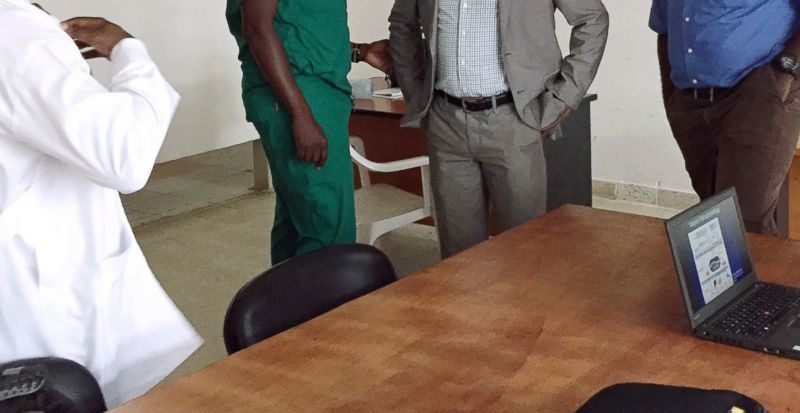After the outbreak: Med schools boost Ebola-wrecked Liberia
The Ebola epidemic that ravaged Liberia took a heavy toll on the country’s medical ranks, leaving the West African nation with one of the lowest doctor-to-patient ratios in the world.
To build the country’s health care system back up, teams from American universities and hospitals, with backing from the World Bank and the US government, are working to strengthen medical training and develop a new corps of doctors.
Onyema Ogbuagu, a Yale School of Medicine professor who spent last week in Liberia, said the country’s remaining doctors all have stories of people they knew personally who contracted Ebola and died during the 2014-2015 outbreak, which killed 4 800 in the country and thousands more in Sierra Leone and Guinea.
“These are committed physicians,” he said. “Even when they realised it was a risk to them, they continued to offer care.”
Shortages of medical faculty have left deep gaps in trainees’ knowledge, Ogbuagu said, and there is lingering psychological trauma from the epidemic. Some medical residents need to be pressured by supervisors to put their hands on patients for examinations.
Yale is taking the lead on training in internal medicine in a World Bank-funded training effort that also involves Boston Children’s Hospital, which is focusing on pediatrics, and New York’s Mount Sinai, which is providing training on surgery and obstetrics. Grants from the US Health Resources and Services Administration are also support efforts in Liberia by Yale, Brigham and Women’s Hospital and New York University.
Universities in wealthy countries have long been involved in global health, but experts say they are coming under increased pressure to make lasting contributions in the poor countries where they operate. Keith Martin, director of the Consortium of Universities for Global Health, said that many Western universities have typically gone in to do research, had educational experiences and left, leaving little behind.
“Developing country institutions are demanding that partnerships be more equitable, that there be more long term benefits,” Martin said.
Asghar Rastegar, a professor of medicine and director of Yale’s Office of Global Health, said a long-standing priority for the university has been to build capacity when it sends people to developing countries. But he said there has been a shift as in Yale’s work in Rwanda, where any non-governmental organisation needs permission from the government, which decides what is needed.
“There has been a sea change in the last decade where African academic leadership has taken a position that they are able to solve their own problems, if they are provided adequate sources, and they need to be in the driver’s seat,” he said.
The work that Yale is doing marks a return to Liberia, a country where earlier training efforts were disrupted by the outbreak.
Of the three core faculty members installed by Yale two months ago, two are from Nigeria and one is from Uganda. They have received training previously from Yale. Rastegar said Yale is recruiting from African institutions for the project as much as possible because they are culturally adept at working with their colleagues.
The goal of the five-year project is to make Liberia’s health care system more resilient, and better prepared for the next public health emergency.
Within about a year, Rastegar said, Yale expects it also will send residents from Connecticut to Liberia. He said it will be an opportunity to teach them how much they can do with very limited resources.
“You can make decisions about patient care without all the technology we have available to us,” he said. “They will see why they want to be a doctor.”

